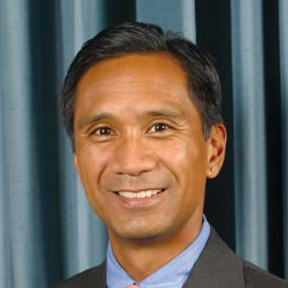Five years after the September 11 terrorist attacks there is one lingering question: are we safer? America is certainly a country with more physical security to defend against terrorism. Airport security is tighter than in the wake of 9/11, including screening all checked luggage for explosives and—in the aftermath of British authorities uncovering a plot to blow up airliners by smuggling liquid chemicals on board aircraft—banning passengers from taking any liquids onto airplanes. We have made buildings more secure by erecting barricades, prohibiting parking and other access, deploying armed personnel, and instituting identity and vehicle checks. Although such measures certainly raise the threshold for a successful attack, they do not provide absolute protection against suicide terrorists. Indeed, it is probably safe to say that Baghdad has more security than the average U.S. city, but that has not stopped the onslaught of terrorist attacks. So increased security is no guarantee of being safer from terrorism.
Although we can and should take comfort in the fact that America has not been attacked again, that does not necessarily mean that all of the actions we have taken have prevented at attack. It could simply be that al Qaeda has not chosen to attack. Unfortunately, we are at a loss to know the explanation. Unlike during the Cold War when we had spies in the Soviet Union, we have not penetrated the al Qaeda network or the larger radical Islamic movement. So we are still on the outside looking in, without any way to confirm whether our analysis of the intelligence we are able to collect is in the ballpark, let alone on the mark.
Although President Bush is right that we need to go after “the terrorists abroad so we do not have to face them here at home,” we must also understand that simply killing terrorists—however necessary—will not make us safer. If we want to be safer, we need to address why people choose to become terrorists and why they want to kill innocent Americans. This requires understanding that the growing tide of anti-American Muslim hatred—which is the basis for the radical Islamists to draw Muslims to their ranks—is fueled more by what we do, i.e., U.S. policies, than by who we are. In other words—as the 9/11 Commission concluded and numerous polls conducted throughout the Islamic world show—they do not hate us for our freedoms, way of life, culture, accomplishments, or values.
Yet while the 9/11 Commission understood that point, they ultimately did not prescribe any real change from the course charted by U.S. foreign policy since the end of the Cold War. And many liberal critics of the Bush administration – such as Peter Beinart, who proclaims that liberals and only liberals can win the war on terrorism – are simply arguing for their own version of neoconservatism legitimized by the veneer of the United Nations and multilateralism. But this is simply style over substance, and continued denial of the problem.
If we are unable to admit that some of our policy choices are wrong, how can we hope to correct them? Such refusal results from not wanting to be accused of blaming America for 9/11, which is understandable, and certainly nothing justifies those terrorist attacks. But with more than one billion Muslims in the world, we cannot continue to ignore addressing the underlying reasons that so many of them have a growing hatred of the United States.
While it is certainly necessary to kill terrorists abroad and to protect Americans at home, that is not enough to make the United States safer against terrorism. But defending against terrorism is a Maginot Line, because a determined terrorist will eventually find ways to circumvent the defenses. And since it is unrealistic to believe that we can kill each and every al Qaeda terrorist, this only accentuates the imperative to change U.S. foreign policy. If the United States does not change its policies to stem the growing tide of anti-American sentiment overseas—particularly within the Islamic world—all the time, effort, and money spent on other aspects of homeland security will be wasted, because the pool of terrorist recruits will grow and the United States will continue to be a target. No matter how successful the United States is in homeland security and dismantling al Qaeda, the terrorist threat to America will not abate unless U.S. foreign policy changes. More than anything else, U.S. foreign policy is the cause of the virulent anti-Americanism that is the basis for terrorism. Changing U.S. foreign policy may not guarantee victory in the war on terrorism, but not changing it certainly will spell defeat.
Ultimately, without blaming America, we must be willing to look in the mirror to examine and understand how our own policies—both foreign and domestic—may affect the dynamics and evolution of the Muslim terrorist threat. The task, then, is to avoid the famous quote by Walt Kelly’s comic strip character Pogo: “We have met the enemy and he is us.”







